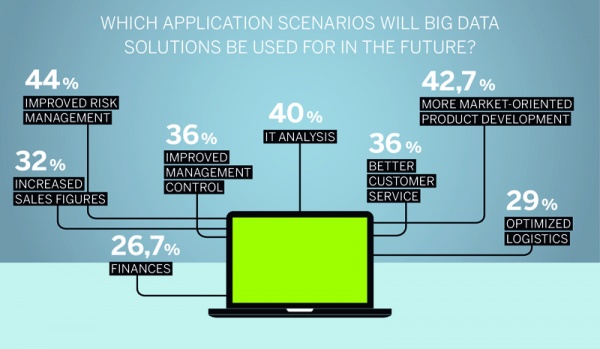Share
Lately there has been a lot of buzz around the words ‘Big Data’. It was all about just ‘data’ in the past and then all of a sudden there is a lot of talk about ‘Big data’. So what has changed? In my opinion – nothing.
Data is data - be it small or big. It’s the process of how this data is converted into valuable information that has changed. Data and business analytics are vital for any business, from smaller start up ventures to medium and large sized enterprises. As your company grows, there will be more and more data in your databases. They key to faster and more efficient growth of your business, is in how you use all that data. There are tons of tools out there to create and measure key metrics pertaining to the size of the data stored in your systems. There are also analytics tools to cater to a specific industry and/or service.
There is a perception in the marketplace that data analytics is only for enterprise level companies. All business owners should have key performance indicators (KPIs) set before they even start the business. These KPIs will be essential for the growth of your company and they should be measured from day one of your business operations.
Opting to choose the right analytics tool will save you a lot time and resources. When you are starting a business, choosing an enterprise level analytics tool like SAP Business Objects or IBM’s Cognos, can put a huge dent to your finances. Unless you are starting with Terabyte or Petabyte size of data, I suggest you start with lighter analytics tools. Start collecting data early on and derive a business intelligence strategy to meet your business goals and strategic objectives. For example, if you are looking to generate more traffic to your website, you can start by analyzing your current traffic patterns with Google Analytics and then evolve into lead generation, customer relationship management (CRM), salesforce automation (SFA) or marketing automation software solutions. Hubspot is great for lead generation, SugarCRM is a leading open source solution for customer relationship management and Salesforce crosses over in both CRM and SFA. Eloqua leads marketing automation at the enterprise level and a lot of data can be compiled on website usage using these powerful marketing automation and related software solutions.
For mid range businesses there is a huge selection of business intelligence and data analytics tools available. Some of the popular ones are Microsoft Business Intelligence (BI) built on MS SQL Server, BlackIron BI offering colocation and cloud services, SAS BI, and Qlikview that can extract data from Excel, Access, and other popular databases like SQL Server and Oracle. Qlikview as it is very ‘light’, intuitive and easy to learn and use.

Big enterprises are mostly using one or combination of SAP’s Business Intelligence,Oracle’s Essbase, or IBM’s Cognos.
API integrations are now available in many of the favourite cloud based platforms and you can “mash up” different platforms so you can access different tool sets from one user interface so you have all your tools in one place. There are cloud-based BI solutions that offer solutions from small to enterprise level organizations. Cloud solutions are available at a fraction of a cost of enterprise level software. Opting for the the right cloud BI solution for your business can be a complex task, since there are bunch of decent cloud BI solutions available in the market. Just to name a few there is Polychart, Birst, Jaspersoft,MicroStrategy Cloud BI, BIME, and Actuate BIRT.
Although choosing the right analytics software is crucial for growth of your company, business intelligence is more than just a tool. You need to have an understanding of how and why you need to analyze the data, and then have the right strategic plans in place before you start investing your time and money in the technology. I will be writing about Business Intelligence strategy in my next blog.
You can follow me on twitter @madanalytics for related topics.


